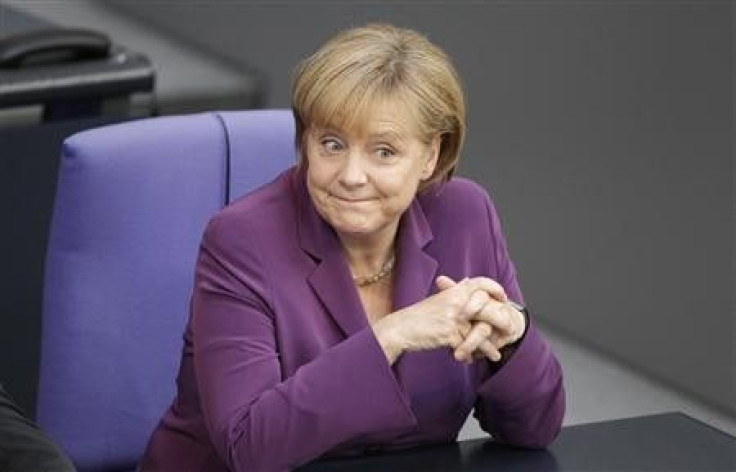Merkel calls for “sensible” exit strategy

In a wide-ranging and rambling speech during a luncheon at the G20 Business summit in Seoul, Korea, Germany’s chancellor Angela Merkel called for a “sensible” exit strategy from the global credit crisis.
She also said that it is “absolutely essential” for G20 member nations to adhere to its goal (as specified at the Toronto summit in June) to halve their deficits by 2013.
Merkel noted that fiscal consolidation is not necessarily at cross-purposes with conducting sustained economic growth.
“These are not a contradiction in terms,” she said.
For example, while Germany is cutting spending as part of its government austerity program to reduce debt, she indicated that her country will increasingly invest in such things as research and education in order to guarantee a strong future for young Germans.
Earlier this year, Merkel’s coalition government said it planned to cut about 80 billion euros on its budget by 2014. While no increases in income tax or value-added tax were envisioned, the plan will eliminate thousands of public sector jobs.
The austerity program, the country’s biggest since the end of World War II, is designed to save about 11.2 billion euros next year and reduce the deficit which is expected to register just above 5 percent of GDP this year.
Separately, Merkel and South Korea’s president Lee Myung-bak’’ agreed to expand the two nations’ programs in renewable energy and science technology sectors.
President Lee Myung-bak expressed his wish for the two countries to strengthen cooperation in renewable energy, science technology and components sectors, the presidential office Cheong Wa Dae said in a press release.
On this matter, the two leaders held the same opinion that there is a need for more active cooperation on a people-to-people level, and not only between governments.
Germany is currently South Korea's number one trading partner and third largest investor among European Union countries. Two-way trade exceeded $21 billion last year.
President Lee asked for Germany's active cooperation in giving shape to the agreements reached at the G-20 finance ministers' meeting in Gyeongju and expressed his expectations for further progress to be made at the G-20 Seoul Summit, the Korean presidential office added.
© Copyright IBTimes 2024. All rights reserved.











